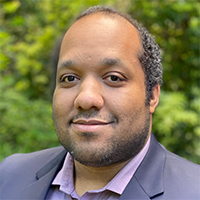Depictions of Disability and NeurotechnologyThursday, November 4, 2021 Human subjects research on invasive neurotechnologies often relies on people with disabilities who are seen as both the future first beneficiaries of neurotech, and first on the neurotechnology frontier. Yet the benefits of neurotech are proposed in ways that lean on ableist goals of 'fixing disability' or 'improving quality of life.' This session would compare how disability is depicted in media with the actual lives disabled people. Speakers
Agenda
RecordingResources
SpeakersJasmine E. HarrisUniversity of Pennsylvania  Katherine E. StandeferAuthor of 'Lightening Flowers' Katherine Standefer is the author of 'Lightning Flowers: My Journey to Uncover the Cost of Saving a Life' (Little, Brown Spark 2020), which is currently a Finalist for the 2021 Kirkus Prize in Nonfiction and which was a New York Times Book Review Editor’s Choice/Staff Pick. Her previous work appeared in 'The Best American Essays 2016'. She lives on a mesa in New Mexico with her chickens. The Cyborg Jillian WeisePoet, video artist, and disability rights activist Moderator Tim BrownUniversity of Washington Dr. Tim Brown is an Assistant Professor of Bioethics & Humanities at the University of Washington’s School of Medicine and a founding member of the Neuroethics Thrust within UW’s Center for Neurotechnology (CNT). His work explores the moral and interpersonal impact of machine-learning-driven brain–computer interfaces. His most recent investigations concern the potential for neural engineering and neuroscientific research to harm marginalized communities. |
